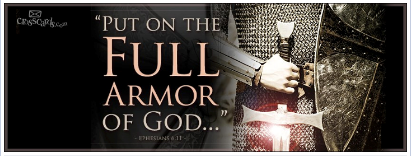PATIENTLY ENDURING
Missionaries are my heroes, and I want to read more biographies about them. I am reading a highly touching one about Adoniram Judson, the missionary to Burma, 1813 to 1852.
I am struck by the loss and suffering he had to endure. I shudder tearfully thinking that if our Lord didn’t answer many of his prayers, why should He answer mine! However, Judson’s experience shouldn’t throw us for a loop. God had promised that the Apostle Paul would have to suffer grievously for Him (Acts 9:16).
And then there is the case of Job, the most righteous of men, whom God held in the highest esteem and who suffered the loss of all things. We are also warned about the great persecution accompanying the end of the age:
∑ “and some of the wise shall stumble, so that they may be refined, purified, and made white, until the time of the end, for it still awaits the appointed time.” (Daniel 11:35)
But why must the wise of the Lord - the most godly - be refined through suffering? For the same reason that the Lord had allowed Paul to be afflicted by Satan:
• “So to keep me from becoming conceited because of the surpassing greatness of the revelations, a thorn was given me in the flesh, a messenger of Satan to harass me, to keep me from becoming conceited. (2 Corinthians 12:7; Job 33)
I was also perplexed by what was written to the godly Church of Smyrna. Some would be required to die as martyrs (Revelation 2:10). How disturbing! Should not the Lord have instead chosen some lukewarm Christians for martyrdom?
However, these accounts remind me that my ways are not His ways:
• “For my thoughts are not your thoughts, neither are your ways my ways, declares the Lord. For as the heavens are higher than the earth, so are my ways higher than your ways and my thoughts than your thoughts.” (Isaiah 55:8-9)
This was a lesson Job had to learn. He had thought that he understood enough about God to bring charges of injustice against Him. However, he subsequently repented of such arrogance.
This is also a lesson that I need to learn, especially when I suffer and speak out angrily against God. But I’ve been left wondering, “Can I trust a God who just wants me to accept His claim that His ways are so above my understanding?”
Moses often had to deal with this very charge coming from the Israelites. He reminded them that they could trust God because of all He had done for them:
• “Did any people ever hear the voice of a god speaking out of the midst of the fire, as you have heard, and still live? Or has any god ever attempted to go and take a nation for himself from the midst of another nation, by trials, by signs, by wonders, and by war, by a mighty hand and an outstretched arm, and by great deeds of terror, all of which the Lord your God did for you in Egypt before your eyes? To you it was shown, that you might know that the Lord is God; there is no other besides him.” (Deuteronomy 4:33-35)
I am also reminded of the many things that God has done for me. Consequently, what I know about my Savior enables me to trust Him despite the many things I don’t know about His ways. Although this is no assurance that I too will not have to suffer (2 Corinthians 4:10-11), I am assured that He will deliver me (1 Corinthians 10:12-13) and use the suffering for a blessed purpose (Romans 8:28).
This was also the conclusion that Judson embraced after losing his dear wife Ann and their children. I pray that I will not have to endure such loss. However, I am trusting that my Savior will give me what I need to endure, perhaps even with joy and peace.
